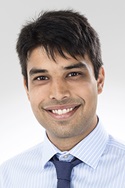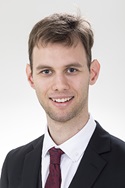Anny Huynh

Position: Principal Project Officer
Anny studied a Bachelor of Commerce (Honours) at the University of Western Australia.
What’s your job about?
I work at the Department of Health as a Principal Project Officer. Currently, I am part of the Intergovernmental Relations and Strategic Program Support (IGR SPS) Directorate within the Strategy and Governance Division. The IGR SPS Directorate is responsible for advising on Commonwealth-State matters and driving collaboration on key intergovernmental policy priorities to achieve better outcomes for WA Health.
In my current role, I am responsible for the Residential Respite Pilot (Respite Pilot), which is aimed at providing an alternative discharge pathway for older patients awaiting permanent residential aged care.
This role involves overseeing all aspects of the project development and implementation, which often means that no two days are the same. Some days I might be preparing project resources, developing and implementing strategies, or evaluating performance. Other days, I might be providing subject matter expert advice on my portfolio, undertaking research, or responding to ministerial correspondence. The variety keeps the role interesting and allows me to learn new things every day.
What’s your background?
I’m born and raised in Perth!
Initially I had pursued a degree in Pharmacology due to my interest in science, but as I approached my graduating year, I couldn’t see myself working full-time in a lab. As a result, I changed to a Bachelor of Commerce.
During my final year at university, I saw an ad for the WA Department of Health Graduate Program. The ability to improve patient outcomes whilst learning about the various parts of the health system sparked my interest. As a result, I decided to apply and was fortunate to be selected to be part of the 2019 graduate cohort. Through the WA Department of Health Graduate Program, I was able to meet well-rounded graduates which turned into lasting friendships and a strong network for my career.
Following three diverse rotations as a General Corporate graduate in 2019, I was lucky to secure a position within the Workforce and Employment Unit at the Department of Health. During my time there, I delivered the annual ‘Your Voice in Health’ Employee Engagement Survey and the 10-year Health and Social Care Workforce Strategy.
Could someone with a different background do your job?
Of course! Skills in project management, stakeholder management and analytics are highly advantageous but not strictly essential. I would say a large component of my skillset has been developed/learnt on the job.
What's the coolest thing about your job?
It’s incredibly rewarding to see a project from start to finish. In particular, I really enjoy being able to support the delivery of a project which has a meaningful impact to the WA community and the sustainability of the health system.
What are the limitations of your job?
I’m not sure if there is a limitation but the job does require you to be highly adaptable. Often with projects, the outcomes and scope may change based on Government priorities to ensure better alignment to community needs. This means that your priorities may change quite vastly – but it’s also what keeps it interesting.
3 pieces of advice for yourself when you were a student...
I’m not sure if I have three pieces of advice… one that has stuck with me though is don’t be afraid of making mistakes.
Drianca Naidoo

Position: Project Officer
Drianca studied a Bachelor of Psychology and Bachelor of Commerce (Human Resource Management and Industrial Relations) at Curtin University.
What’s your job about?
I work for the East Metropolitan Health Service (EMHS) on the HIVE (Health in a Virtual Environment) Project. The HIVE is a remote monitoring service which utilises an artificial intelligence platform that is integrated with medical devices and clinical applications to detect early signs of patient clinical deterioration. When the artificial intelligence platform detects a problem, clinicians in a Command Centre interact with the ward staff using an audio-visual system to support the ward staff to care for the patient.
My role as a Project Officer has been to support the development and implementation of the service at two hospital sites. As the only project officer on the team, I support the clinical, technology, facility and procurement workstreams. My portfolio is extremely diverse, and no day looks the same. Some days I might be writing business cases, website content, briefing notes, reports. Other days I might be participating in clinical simulations, developing workflows and policies, evaluating multi-million-dollar tenders, designing the Command Centre facility, producing service marketing videos, reviewing technical requirements, analysing patient data, managing dashboards or coordinating events for the Minister for Health.
In addition to the project management component, I have been responsible for the development of a HIVE research program. This has involved establishing the governance, forming a steering committee, defining a research application process, attracting and engaging research organisations and developing and reviewing research proposals.
I love the variety – it keeps me engaged but also helps to broaden my skillset and knowledge of the health system!
What’s your background?
I was born in Durban, South Africa. In 1999, my parents booked a trip to Australia for the sole purpose of scoping out several cities to decide where to settle. In 2000, we were on a plane to our new home, Perth, Western Australia.
Fast track to university - I was selected to go to Switzerland to undertake an extracurricular health science course and knew I wanted to do something related to health. In my Honours year, I was planning on pursuing a career as an organisational psychologist however discovered that the master’s course was temporarily not being offered in WA. I had a choice to either move interstate or work. At the time I was working in human resources (which I enjoyed), but by chance, stumbled upon an advertisement for the WA Health Graduate Development Program and knew I had to apply. I was successful and undertook three four-month placements throughout the WA Health system.
In my second placement, I met my current Director who is passionate about developing the next generation of leaders within Health. He pitched me the concept of the HIVE and I couldn’t say no – a truly innovative, meaningful health project in a fantastic team with supportive leadership was exactly what I was hoping to land. I’ve now been with the team for 14 months. The nature of a project role means that it has a defined time period, so I will be very sad at project closure but excited to see what’s next.
Could someone with a different background do your job?
Absolutely, yes! I believe a large proportion of my role (and other Project Officer roles) predominantly relies on a transferrable skill set. The key skills I would argue are imperative are: critical thinking, analytic reasoning, problem solving, communication, adaptability, and collaboration.
There are some technical and knowledge aspects required my role. In retrospect, a lot of these I’ve learnt ‘on the job’, so if you have the right attitude and are eager to learn then you will excel. Being a quick learner is also key in a project role where you are likely to be moving from project to project in new areas.
What is the coolest thing about your job?
The HIVE is immensely complex and involves working with industry experts in an array of fields such as medical, nursing, biomedical, technology, ICT, data, and hospital logistics. As a project officer, I get to collaborate with these people to achieve a common goal. On the daily, I interact with people from completely different backgrounds, knowledge and skills sets which consequentially has increased mine – in areas I have would never have imagined!
Above all though, the coolest part of my role is that now that the HIVE has commenced operations – it’s definitely very rewarding to know that I was involved in implementing a service that is essentially saving patient lives and improving outcomes.
What are the limitations of your job?
The one limitation I can think of is ‘speed’. Working in government and health in particular means that sometimes things take a bit longer than what might be possible in other organisations, for example, a start-up company. The sheer complexity of health, people involved, processes, resourcing and politics, can be a barrier to innovation. Sometimes ideas may get knocked back because ‘that’s the way we’ve always done things’ or not even attempted because ‘it’s too hard’. It takes someone with determination, perseverance and drive to work in a change role within health.
3 pieces of advice for yourself when you were a student…
- Never be the smartest person in the room. If you think you are, invite smarter people or find a different room.
- Be a sponge and soak up everything you can. Not only that, but proactively seek opportunities or challenging situations that push you to grow.
- Invest time in establishing, developing and nurturing meaningful relationships in all areas of your life.
Daniel Dalby

Position: Business Analyst
Daniel studied a Bachelor of Engineering (Chemical) and Master of Professional Accounting at Curtin University
What’s your job about?
I work for the Fiona Stanley Fremantle Hospitals Group, which consists of two hospitals situated south of Perth, including the largest public tertiary hospital in WA. My role’s key responsibility is for a variety of performance reporting (with a focus towards financial results) for the Group to senior management.
Broadly, this involves analysing financial & non-financial data against set targets each month and identifying the key trends and anomalies. I then need to understand these trends by connecting them to operational factors. This requires understanding how the hospital operates by speaking to clinical staff or business teams from each division in the Group. All this information is brought together into one dashboard to assist the senior management in understanding how the hospital has performed and how it’s expected to perform looking forward.
There’s also a significant component of innovation and improvement. This involves looking for ways we can report better quality information, automate old processes or improve financial controls. I use a variety of tools to accomplish this. There’s quite a lot of coding involved for getting data (SQL and M), speeding up Excel (VBA) and building dashboards (DAX for Power BI). Excel is heavily used for financial modelling and analysis, but I explore new avenues wherever possible.
What's your background?
I spent the first few years of my life in Bunbury and have been a Perth resident ever since. Developing a love of chemistry and science led me to undertake an engineering degree at Curtin University. I experienced unexpected health issues mid-way through my degree that meant I had to quit my casual job and delay study. Staying positive and socially connected was a constant challenge over this period but fortunately with medical treatment I was gradually able to return to a normal life. After five intense years of study I was fortunate enough to secure 3 months’ work experience, at Iluka Resources and moved back down to Bunbury for the duration. It had become increasingly clear how competitive the job market was and as I wanted to stay in the city, realised I may need to reskill to achieve this.
After much rumination, accounting appeared to be the smoothest career transition and so I went back to study. After completing two internships at the Big 4 accounting firms, another path presented itself – the graduate program at the WA Department of Health. This was a deviation from my plans but working for a community serving with a complex environment was appealing.
Following three rotations as a graduate in 2018, I was able to secure a position at Fiona Stanley Hospital, which has then led to further opportunities since. I’ve continued my professional development and am near to becoming a Chartered Accountant.
Could someone with a different background do your job?
Absolutely. Having some accounting background is essential for my role however a full degree isn’t strictly necessary. My role is diverse and marries typical accounting duties with other project-based work. Skills in data analysis, problem-solving, project management and knowledge of query languages would all be highly advantageous. There’s a degree of negotiation and implementing change so being able to navigate people’s competing priorities and personalities is needed.
What's the coolest thing about your job?
I love the ability in this role to effect change – even in small ways. It may be automating a regular task, fine-tuning reports to improve data quality or adjusting existing processes to reduce costs. I enjoy the challenge from understanding a complex problem and looking for ways that we can improve each day. I feel this contributes to the collective effort to make the Health system increasingly sustainable and effective.
What are the limitations of your job?
I imagine most of government faces high levels of governance; having certain legal obligations as mandated by all manner of legislation because accountability to the public is key. This can make the environment slow to adopt change, which can be frustrating at times. Learning to accept and navigate these constraints is necessary to be successful.
You also need to resign yourself to the reality of the monthly reporting cycles that consume the first two weeks of each month. There are many deadlines in this period and can make planning holidays a bit challenging!
3 pieces of advice for yourself when you were a student...
- Don’t be afraid to start again if you feel you’re in the wrong course. All learning is useful, and the extra years spent will go quickly.
- Worry less but take the initiative when job searching. Applying for jobs is stressful but if you work hard, are willing to be flexible and are proactive then you’ll be well positioned to find a job.
- Use your time well. The flexibility of student life allows time to travel, volunteer and broaden your horizons.
Henry Clarkson

Position: Quality Officer
Henry studied a Bachelor of Science (Computer Science, Cyber Security Specialisation) at Curtin University
What’s your job about?
My team is responsible for curating data to be used for things like regular reporting, research and quality improvement activities at the Child and Adolescent Health Service, and I am responsible for ad hoc reporting for people working at our organisation.
On a typical day, my team will receive around 1-3 data requests throughout the day, which I will usually complete in the early morning or later afternoon of my day. These are typically quite bespoke and ad-hoc requests, such as “how many people in the last 5 years had to go to ED within 28 days of having a tonsillectomy” or “what is the number of expected appointments for the neurology department in the next 5 days”. I usually will have several other projects which I will work on during the day, typically around the automation of manual tasks. This has included setting up an automated process to store files that are sent to our email daily and replacing paper-based uniform order forms with electronic ones with an electronic approval system.
I also help with the development of dashboards to provide regular reporting and self-service of data. This dashboard development lets me break away from the more technical side of my work and utilises my creative design and user experience skills to help display data in useful and interesting ways.
What's your background?
I grew up in a Wheatbelt town in WA, around 3 hours’ drive from Perth. I lived there for 5 years before coming to Perth. At primary school, my favourite subjects quickly became computing, mathematics and art. In my later years of primary school, computing became my #1 subject. During high school, I continued to study computing and mathematics, also gaining an interest in politics and law.
At the end of high school, I applied to study cyber security at Curtin University. At university I was able to successfully win a term as a Guild Councillor and became the Guild Council Chairperson, where I learnt about corporate budgeting and regulations. As part of my final year computing project at the Ear Science Institute Australia (ESIA), I worked on replacing their data storage system which had become outdated. Working for the ESIA showed me the value of health information and why medical data is an essential part of modern healthcare. During my final year, I applied for the WA Health Graduate Development Program and was successful.
I spent 1 year with the Graduate Program, working at the Department of Health in 2 data roles, and at the Health Support Services in a cyber security role. After the Graduate Program I was invited back to the Health Support Services to provide data assistance to a cyber security program for 6 months, and then I was offered a role in my current job as the security program was winding down.
Could someone with a different background do your job?
My job is quite varied and multi-skilled. Different parts can be fulfilled by people with many different backgrounds. For the dashboard design, this can be done by anyone with background in user experience, science communication or statistics and has the creativity to create sharp designs. For the ad-hoc reporting, it can be done by anyone with some experience in databases and experience with helping determine user requirements. For the automation projects, this can be done by anyone who likes to tinker and improve, using many of the available tools for WA Health.
What's the coolest thing about your job?
What I like most about my job is the freedom to experiment and tinker with many of the tools available to curate data. There are many places where I am asked to help automate data collections or data cleaning, and I have plenty of time and resources to play around and find a solution. This has helped many people move from their manual tasks to do more interesting parts of their job. Often after creating these solutions, I see them adopted and propagating out to automate similar tasks.
What are the limitations of your job?
My work is quite indicative of the saying “when it rains, it pours”. Throughout a month, I might have moderate levels of work that involve the maintenance of previous projects and dashboards and catch up on some paperwork. Later that month, my workload may ramp up significantly with several reports due at the same time, starting new projects and my inbox filling with complex and urgent data requests. I have very little control over the amount of work I will get in any one day, and some days require a lot of time prioritisation and honesty about when tasks can be completed. Organisation is key!
3 pieces of advice for yourself when you were a student...
- When you’re at university, create a regular sleep schedule that gets you up by 7:30am at the latest. If you cannot wake up before 8:00am, some of your most important opportunities will pass you by and you will lose what you have.
- Many of the things that will help you get a job is not related to university study. Get involved in the Guild, get involved in competitions, join teams and clubs.
- There is no shame in studying part-time. Many courses require you to give it more time than full-time studying allows.